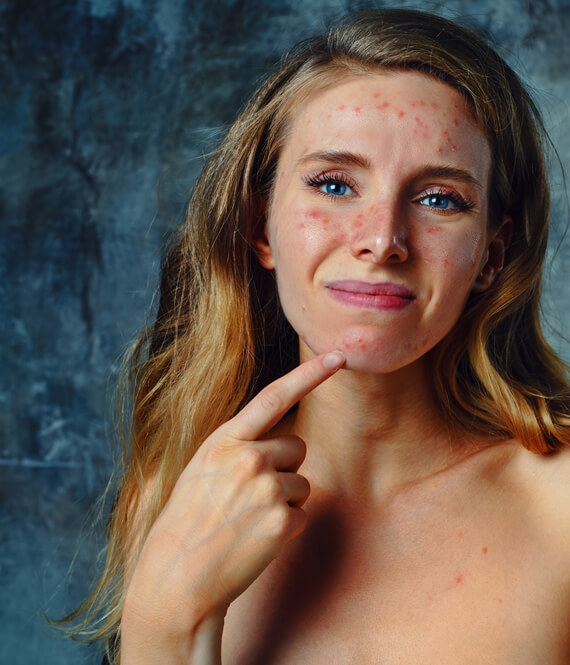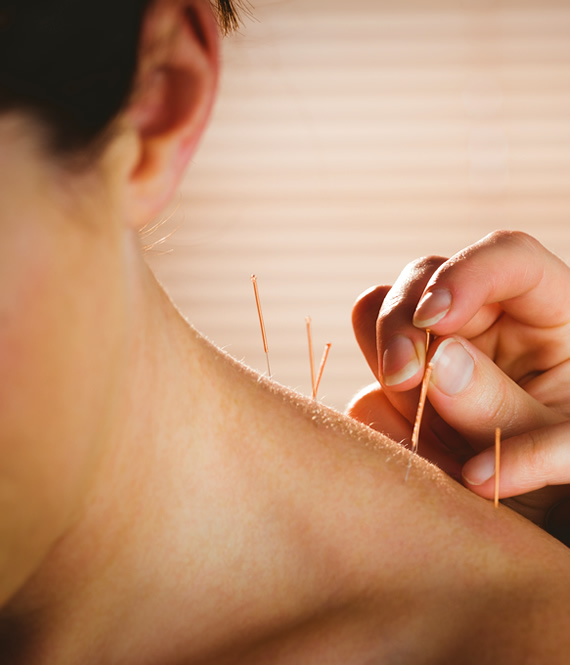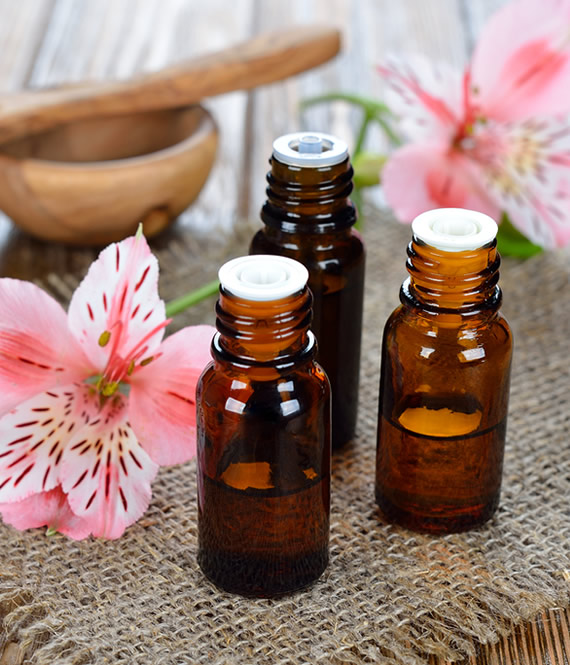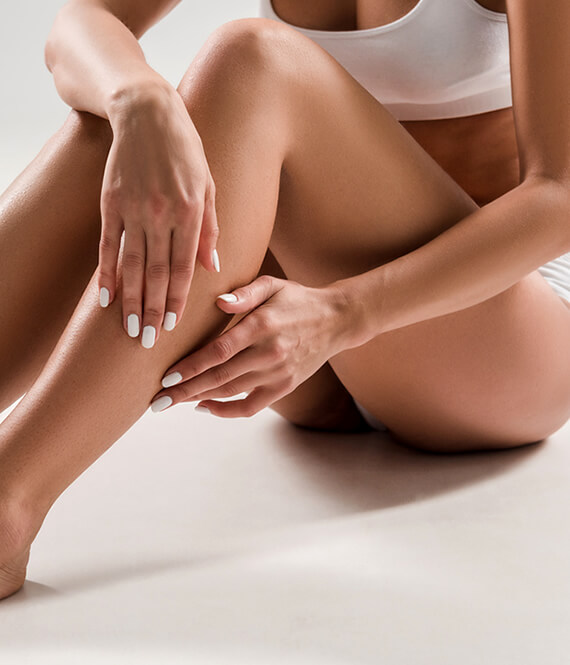
5 Things Your Skin Could Tell About Your Health
We recommend helpful products in our articles. Read our full disclosure here. The content on this website is not intended to be a substitute for professional advice, diagnosis, or treatment.

People should pay more attention to their skin because it’s the largest organ in the body – and it can be a mirror of our health.
That being said, you should not shrug off a subtle color or texture change as something superficial.
Often, your skin condition can tell a lot about your overall well-being.
You never know if paying close attention to your skin health may save you from more severe problems in the future!
Here are a few things that can sometimes mean more than just a change in your skin.
5 Things Your Skin Could Tell About Your Health
P.S.
Any disease or illness should be checked and verified by your doctor.
If you notice anything unusual about your skin, make sure to consult your physician.
1. Appearance Of Veins
The appearance of veins is often regarded as a natural sign of aging.
Unless the veins are already causing pain and other symptoms, having them checked out by medical professionals is not a number one priority.
However, red or blue streaks of veins that sit just underneath the skin’s surface may become more visible due to an unhealthy lifestyle or diet.
People who are overweight, live a sedentary lifestyle, and consume high quantities of alcohol and caffeine are more prone to varicose, spider, or thread veins (1).
Although these vein formations usually appear in the legs, ankles, feet, and nose, they can become more visible in areas with delicate skin.
If you are concerned about their appearance, you can easily find effective vein treatment at home, particularly for thread veins.
However, if they are accompanied by other symptoms linked to an inactive lifestyle and unhealthy diet, it may be a sign that it’s time to see a vein specialist, get help, and bring a healthy balance back into your life.
2. Acne Problems
Pimples or acne usually come during puberty because of hormonal changes in the body.
They are typically considered normal.
However, females of reproductive age who seem to suffer from cystic acne that’s – very – resistant to medication or treatment, may need to visit a reproductive health specialist.
It’s vital to rule out polycystic ovarian syndrome (PCOS) – a condition that affects 1 in 10 women of reproductive age.
Women with PCOS may suffer from insulin resistance and hormonal imbalance (2).
If you have this condition, your skin’s health could be radically improved by treating the underlying causes of PCOS (your doctor might prescribe some medications to address your symptoms).
If you don’t want to take hormonal therapy to treat the imbalance, you may also consider alternative therapies, such as seed cycling.
This method uses seed supplementation to balance a woman’s hormones and improve symptoms like acne, which may be linked to hormone deficiencies.
You will need to properly time your consumption of certain seeds, like pumpkin and sunflower seeds, to the different phases of your menstrual cycle.
3. Itchy Skin
Itchy skin may be caused by insect bites, allergies, or other skin conditions.
Dermatologists usually prescribe an oral or topical medication to get rid of the problem.
However, if itchiness is persistent and already affects your whole body, you may be suffering from other conditions.
An infuriatingly itchy skin, especially one that is not due to visible skin problems, is sometimes an early sign for liver diseases (3).
Pay attention to the areas of your body where you feel the severe urge to scratch.
If you notice that you often feel the itch on your legs, crotch area, lower back, neck, wrist, and ankles, you may need to have your liver tested.
4. Yellow Patches
Yellowish bumps that suddenly appear on your face and body may be caused by a condition called xanthomas. If you notice the presence of waxy, yellowish formations surrounding your inner eye, they are a type of xanthomas called xanthelasma.
Their presence may indicate an untreated cholesterol problem (4) due to a genetic condition, or you may be in the early stages of liver cirrhosis.
Too much fatty and processed food and lack of exercise can contribute to dangerously high cholesterol levels in your blood.
It’s essential to have your cholesterol checked because, more than just xanthelasma, you could also risk stroke and heart complications.
Skin Thickening And Darkening
If you notice the darkening and appearance of slightly elevated patches of skin in your groin, armpits, and sides or back of your neck, you may be suffering from acanthosis nigricans (5).
Sometimes, you may also find thickening of the skin in your elbows, knees, and hands.
Insulin resistance is considered a major underlying cause of this skin condition.
So, if you notice that some areas of your body have thicker and darker skin, you may have elevated blood sugar levels or diabetes.
Additionally, hormonal imbalances can also trigger skin darkening and thickening.
Those with underactive thyroids, ovarian cysts, or adrenal problems may also suffer from acanthosis nigricans.
Facial acanthosis nigricans (FAN), mainly on the forehead and cheeks, can also indicate a metabolic syndrome.
This skin condition is common among people considered obese and insulin resistant.
So, people who suffer from FAN may benefit from losing weight, regular exercise, and a proper diet.
As a bonus, you can also prevent severe chronic illnesses, including kidney and liver problems, heart disease, and stroke, by living a healthy lifestyle.
Bottom line
Having flawless skin is not just about appearances… As the largest organ in the body, it can provide clues about your overall health.
By taking good care of your skin and having it checked regularly, you can detect early signs of diseases and prevent them from becoming complications.
ARTICLE SOURCES
We strive to use high-quality information and deliver content that is based on science, latest research, comprehensive studies, or expert advice. These reputable sources have influenced or inspired this article:
- (1) Ahti TM, Mäkivaara LA, Luukkaala T, Hakama M, Laurikka JO. Lifestyle factors and varicose veins: does cross-sectional design result in underestimate of the risk? Phlebology. 2010;25(4):201-206. doi:10.1258/phleb.2009.009031
- (2) Marshall JC, Dunaif A. Should all women with PCOS be treated for insulin resistance?. Fertil Steril. 2012;97(1):18-22. doi:10.1016/j.fertnstert.2011.11.036
- (3) Hegade VS, Kendrick SF, Rehman J, Jones DE. Itch and liver: management in primary care. Br J Gen Pract. 2015;65(635):e418-e420. doi:10.3399/bjgp15X685477
- (4) Khode S, Tan SHT, Tan EA, Uppal S. Xanthelasma Palpebrarum: More than Meets the Eye. Indian J Otolaryngol Head Neck Surg. 2019;71(Suppl 1):439-446. doi:10.1007/s12070-018-1345-0
- (5) Popa ML, Popa AC, Tanase C, Gheorghisan-Galateanu AA. Acanthosis nigricans: To be or not to be afraid. Oncol Lett. 2019;17(5):4133-4138. doi:10.3892/ol.2018.9736
"We love to research problems, examine studies, analyze solutions, and share with you ideas that make life healthier. You can learn about us and our editorial standards here. Have suggestions or feedback to share? Send us a message!."













Leave a Comment